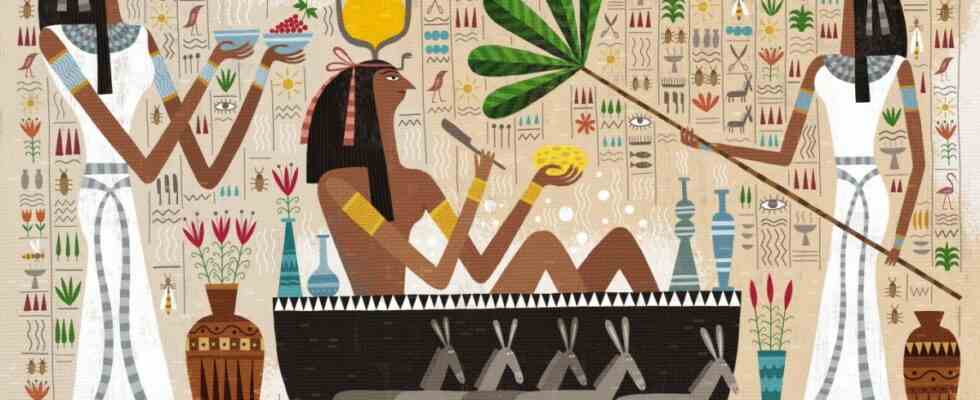“Dirt is my second skin” and “Bathing a lot is harmful”. With quotes like this from the Middle Ages, “The Book of Dirt” makes you smile right from the first pages. The wise advice on personal hygiene that Thomas Turner, owner of a grocer’s shop in 18th-century England, has at hand may also irritate modern readers at first: “People should bathe regularly, that is, every spring at the annual bloodletting.”
Alright, let’s start at the very beginning and let the dirt of the millennia lead us into the super clean 21st century, which, as you can already guess, also has its hygienic pitfalls. In any case, the team of authors shows no reservations. And fortunately there are always real high times of hygiene in between.
In ancient Rome, people did their “business” together
In 31 humorous chapters, the journey goes through the history of body care from ancient Egypt, where toothpaste, shampoo, peppermint for freshening breath, make-up for men and tampons for women were already known – to the International Space Station with its lonely vacuum cleaner toilet. How different it was in ancient Rome, where people did their “business” together and visiting the thermal baths with underfloor heating and all the care frills became a social highlight. Many of these achievements were lost again with the ups and downs of time, be it through Christian modesty, through impoverishment, war, plague, plagues of rats or the change in ideals of beauty – in the water-shy 17th and 18th centuries, the high society preferred to wear pompous wigs , voluminous clothing and massive clouds of fragrance than to sponge and soap.
Piotr Socha / Monika Utnik-Strugata: The Book of Dirt. A not very fine story of dirt, disease and hygiene. Translated from the Polish by Dorothea Traupe. Gerstenberg Verlag 2022, 196 pages, 30 euros. From 10 years on.
(Photo: Gerstenberg Verlag)
The large-format, almost 200-page book takes its subject very seriously, but always presents it with a wink. So you follow the quite extensive text tamely like the actually very clean domestic pig (chapter “dirty language”), read on and on without getting tired, smile about the meaning of sayings like “money doesn’t stink” (the Roman emperor Vespasian taxed the urine, used by the tanners to bolster his treasury) or the term “soap opera” (in the 1930s the emerging radio plays were derisively called “operas” because they were dramatic but banal – they were mostly sponsored by the detergent manufacturers) and discovers something new and whimsical in the colourful, lavishly ornamental illustrations, which often fill whole pages, from a dozen different toilet stools to wildly tattooed Scandinavian giants bathing in an ice hole to hermits whose beards grow meters wide around their bodies. The whole family should have fun with this house book.

